Canadian blogger Lainey Lui on why gossip is political
- Published
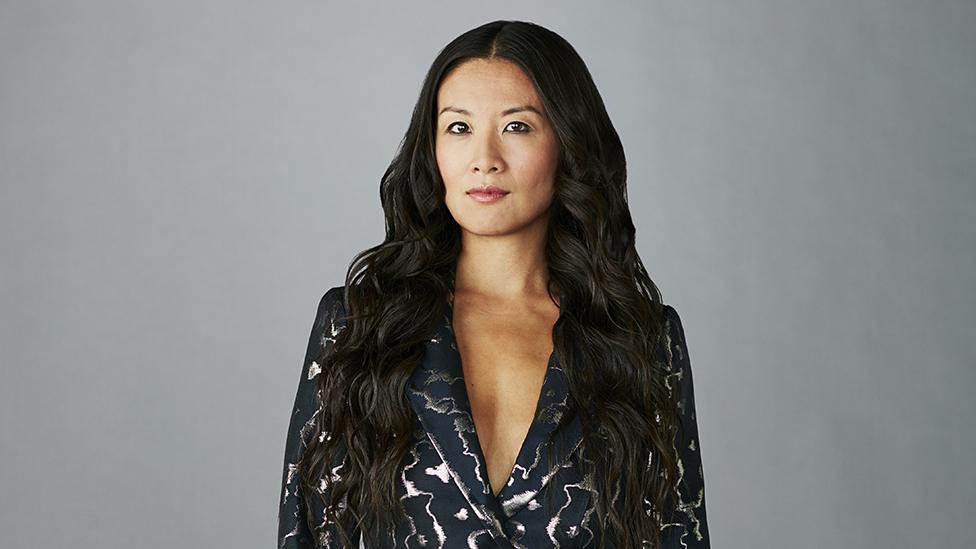
Elaine Lui
A Canadian gossip blogger is on a crusade to make sure celebrity chat gets its due as a relevant conversation about society and politics.
Elaine "Lainey" Lui is keeping a sharp eye on Colin Farrell.
The Irish actor is a few tables over in the lobby of a downtown hotel being interviewed for a film he's promoting at the Toronto International Film Festival (Tiff).
The festival, which runs until 17 September, is a busy time for Lui.
The 43-year-old is doing double duty as an entertainment reporter for a Canadian TV network and as gossiper-in-chief for her blog Lainey Gossip, where her daily observations on celebrity culture bring in about 1.5 million readers a month.
Tiff is providing plenty of fodder for the site, and it's the starting gun for award season campaigns by Hollywood stars - a favourite topic for Lui - since early Academy Award contenders emerge at the festival.
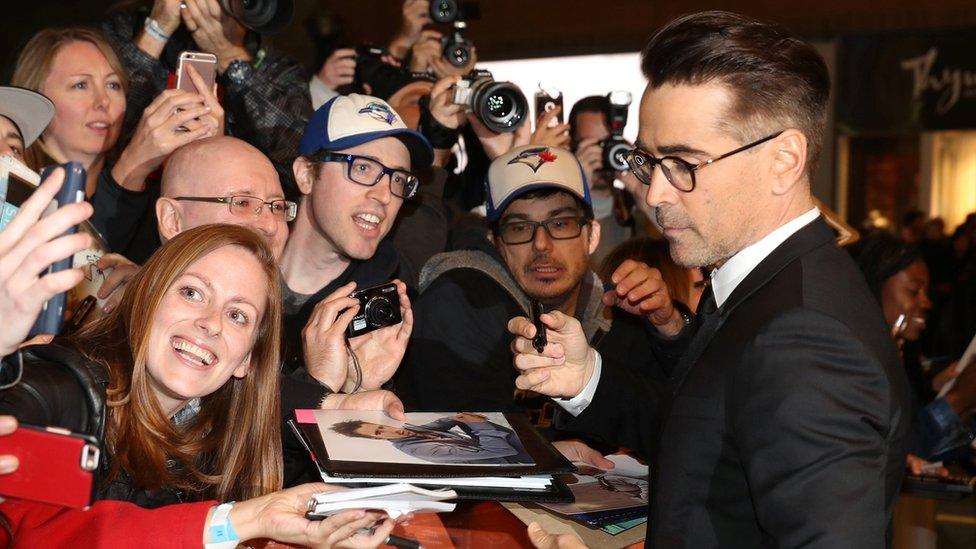
Colin Farrell was in Toronto promoting The Killing Of A Sacred Deer
Around 2010, as Tiff was solidifying its reputation as a top-tier film festival and an essential part of Hollywood's film marketing machine, Lui says the festival scene could still be an intimate affair.
It allowed her closer access to "amazing" parties where she could observe celebrities in close quarters.
Seven years ago, she attended a party for Colin Firth, later writing: "Once in a while, not often, but once in a while, you get to see an actual movie star, a celebrity in every sense of the word, who is actually a human being too. This is Colin Firth".
Tiff brings in over 400,000 attendees and thousands of industry professionals, and generates over C$189m ($155m; £117m) annually for the Canadian economy.
Now she says: "That small intimate party is probably a thing of the past."
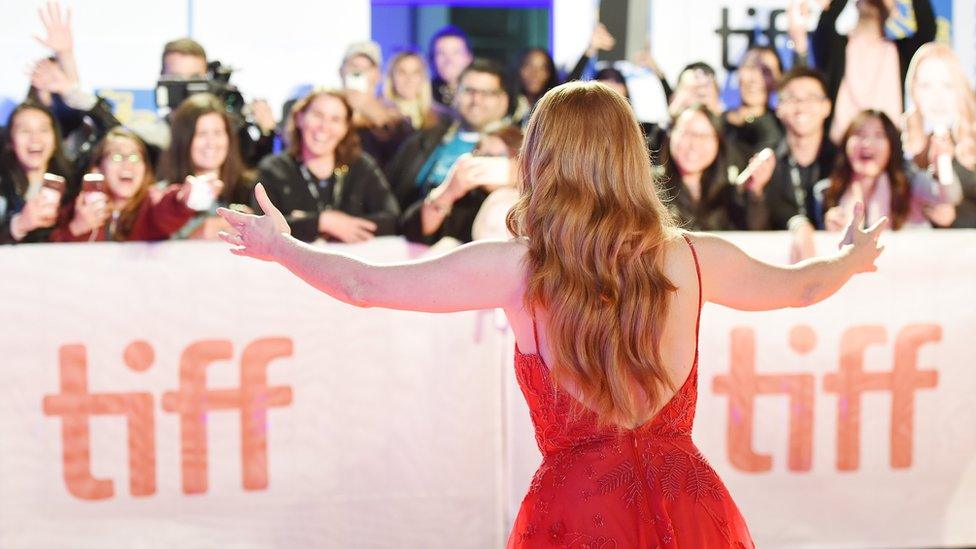
Breakout films at the Toronto International Film Festival can become Oscar contenders
Toronto-born Lui got into the gossip business in a roundabout way.
It began in 2003 as a regular informal email to friends and colleagues with her sometimes foul-mouthed spin on the latest Hollywood news.
A year later, finding the email chain had grown to thousands of loyal readers, she launched her site.
By 2006 it was a full-time job.
In the decade since, with her husband managing the business side of the site and a stable of contributing writers, she's spun it into a job as an on-air personality, a magazine columnist, and a new gig teaching "gossip as social and political engagement" to fourth year students at a Toronto-area university.
Oakland University communications professor Erin Meyers says the internet in the mid-noughties was still a "Wild West" and a fertile space for upstart internet gossips.
"These were people taking what's out there and putting their own spin on it," says Meyers. "So it felt more like gossiping with one of your own friends."
These new blogs - Perez Hilton, Jezebel and others - were challenging the mainstream print tabloids online, serving up plenty of content with unique commentary and snarky asides.
Some, like Lui, also pulled back the curtain on celebrity and the "ecosystem" of publicists, lawyers, agents, and media that surround them.
Meyers says: "Some segment of the audience wanted to see how the celebrity sausage was made, so to speak, and the blogs were more interested in that than the magazines."
It was also around 2006 and 2007 that young celebrities were messing up, she says, in more colourful language. That was when Lui says she started to take a closer look at the nature of celebrity.
She began interjecting commentary about how her own no-nonsense mother would have approached youth and fame.
"It became a conversation about parenting, and it became a question about youth and young people and losing yourself, and vulnerability in youth," she says.
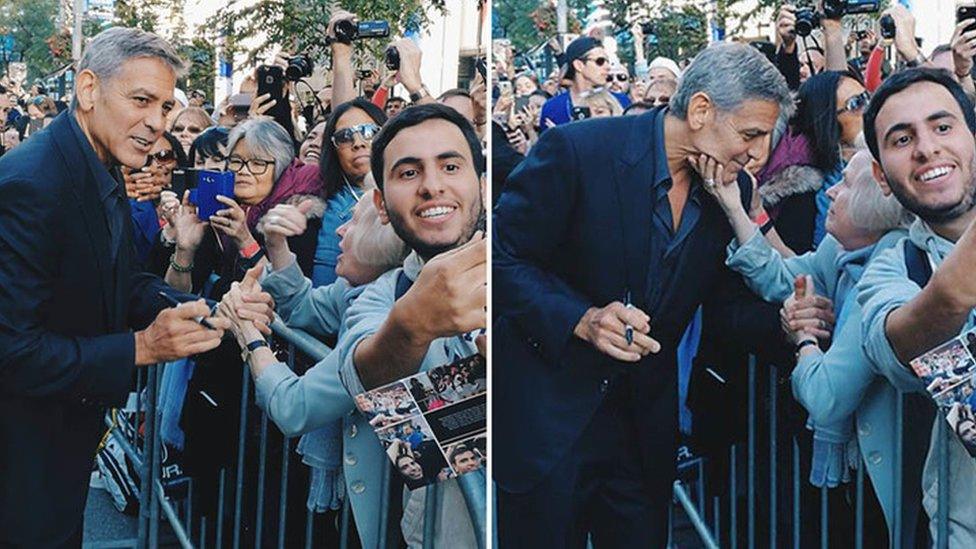
George Clooney meets a special fan at the Toronto film festival
"I just started looking at every story in a way that was deeper and reflective of some of the issues that are bothering us as a community overall."
Lui can write up to 4,000 words a day for the site, and began increasingly weaving in her interpretation of how Hollywood tackles issues like race and gender, privilege and sexual assault with the standard gossip fare.
She takes aim at Hollywood for casting white actors in non-white roles or female actors for dodging issues around wage discrepancies.
She also wants to be a "tour guide", showing readers "the nuts and bolts of celebrity and that eco-system and how it keeps running".
"I started writing in a way that validated how important I believe gossip is," she says.
Lui points to one of pop music's biggest celebrity beefs - starting when Kanye West interrupted Taylor Swift during the 2009 MTV Video Music Awards
The infamous stage-crashing episode is now part of the marketable images of both celebrities, she notes.
"When you talk about Taylor Swift v Kanye West, there's privilege in there," she says. "There is race in there. There is ego in there. There is sexism in there."
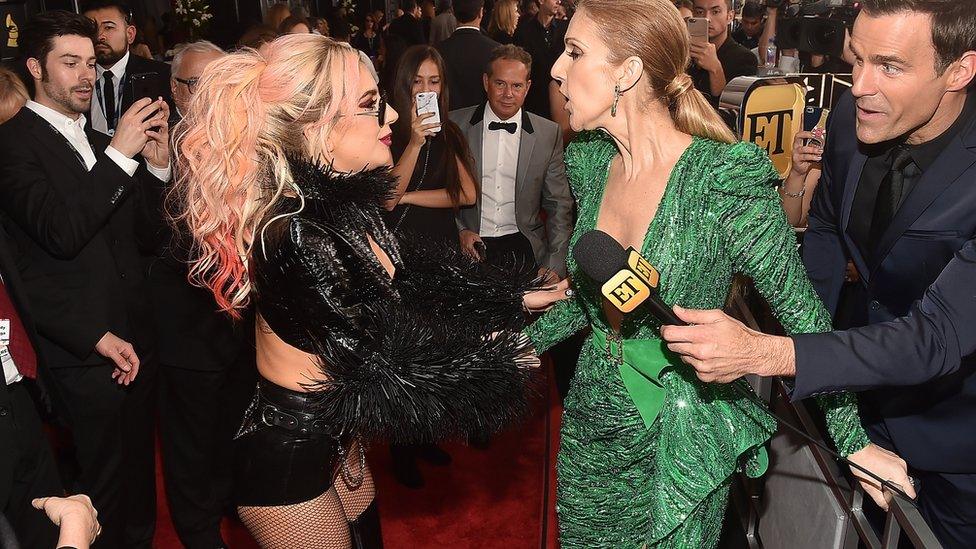
The public has embraced Celine Dion for her authenticity, says Elaine Lui
In one 2016 column on the two hitmakers, she writes: "Kanye loves Kanye a lot. Taylor loves Taylor a lot too. It's a lot easier though for Taylor to love Taylor, isn't it? And it's a lot easier for US to love Taylor. Think about the 'living embodiment of white privilege'. OF COURSE she's feeling herself. Of course we're feeling her too. We've been systematically programmed to."
A self-described "work junkie", Lui says she's most interested in those A-listers who play the celebrity game well - masterfully crafting and maintaining their image while producing acclaimed work. Artists like Taylor Swift, Beyonce and Angelina Jolie.
But Lui says that inevitably, it's the audience who chooses who they fall in love with.
"The fan and the audience are one of the most critical elements of a celebrity ecosystem. Who would they be performing for if not us?" she says.
- Published13 September 2017
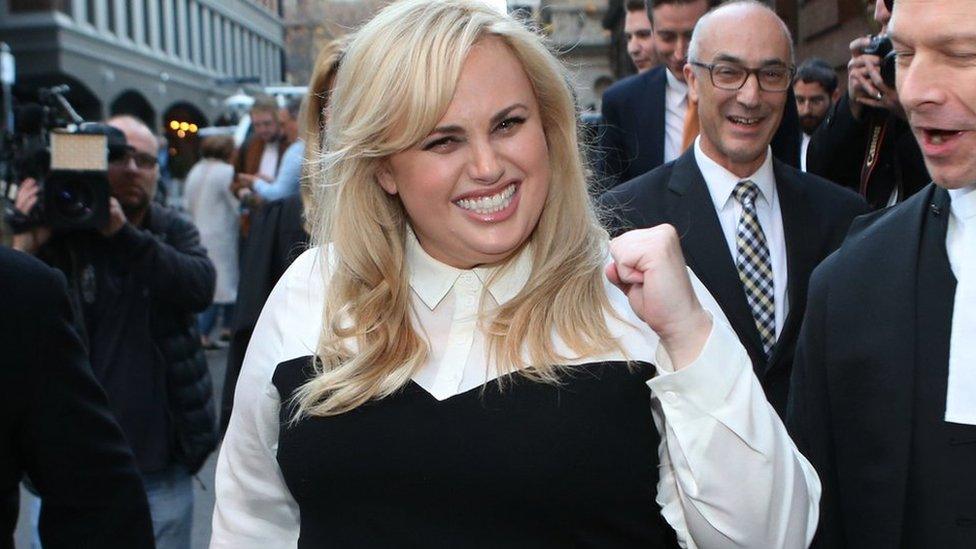
- Published7 September 2017
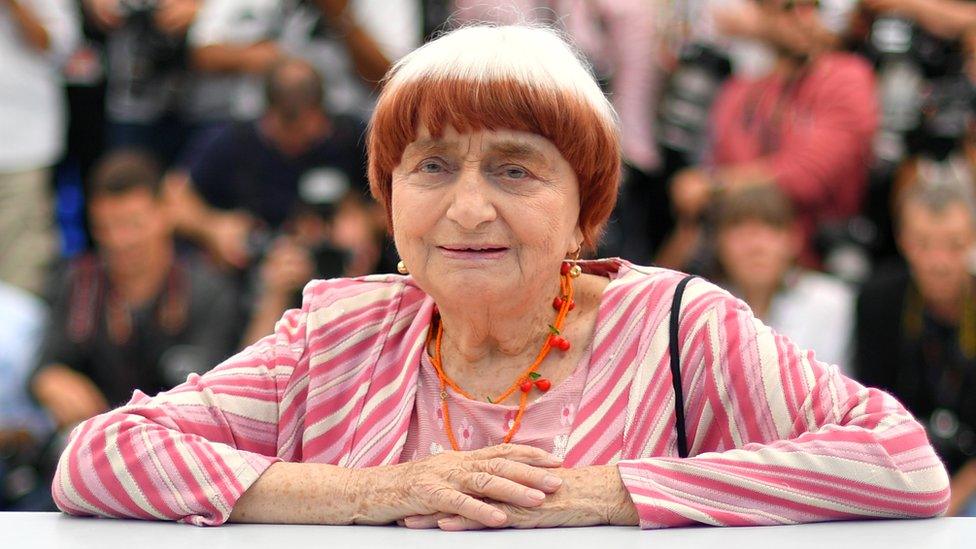
- Published13 September 2017
